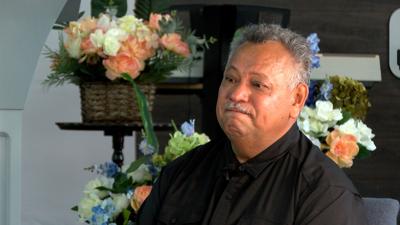Fuentes Espinal and his wife came to the United States with their daughter more than two decades ago on tourist visas, after Hurricane Mitch devastated their home country of Honduras in 1998. The storm changed everything, he said, and forced them to make the difficult decision to leave their families and professions behind.

Pastor Daniel Fuentes Espinal.
"We've looked for information on how we could obtain citizenship. In 2001, I started working for a cleaning company and the manager asked if I wanted to fix my legal status. I told him yes. Then he said, 'Find a lawyer and we'll sponsor you,'" Fuentes Espinal recalled.
Fuentes Espinal referenced Section 245(i) of the Immigration and Nationality Act. At the time, it enabled certain people who were present in the United States and would not normally qualify for a status adjustment to obtain lawful permanent residence, like getting a Green Card. Under this section, it didn't matter how a person entered the U.S., if they were working in the U.S. without authorization or if they failed to maintain lawful status consistently after entering. It was amended at the end of the year 2000.
According to the U.S. Citizenship and Immigration Services, one piece of potential eligibility criteria to receive a Green Card through Section 245(i) requires that a person was physically presnet in the United States on Dec. 21, 2000.
"When I went to see the lawyer, she told me, 'Life can be ironic. If you had entered through the Mexican border, I could have hepled you fix your documentation, but your entry was legal, you came in with a visa, and you entered in March of this year, 2001. You needed to have been here before... because that's when the 245(i) law ended," he recalled.
After that, Fuentes Espinal says he didn't seek legal help again.







